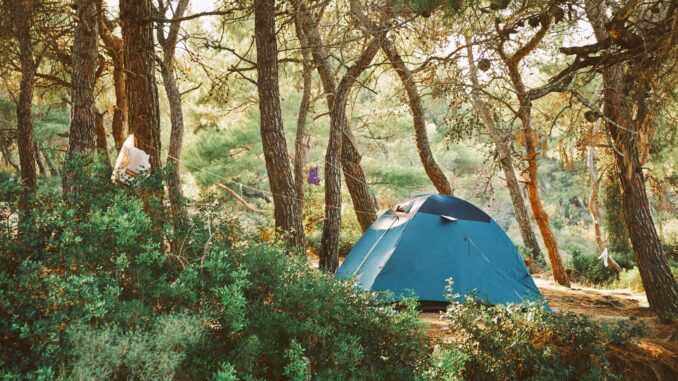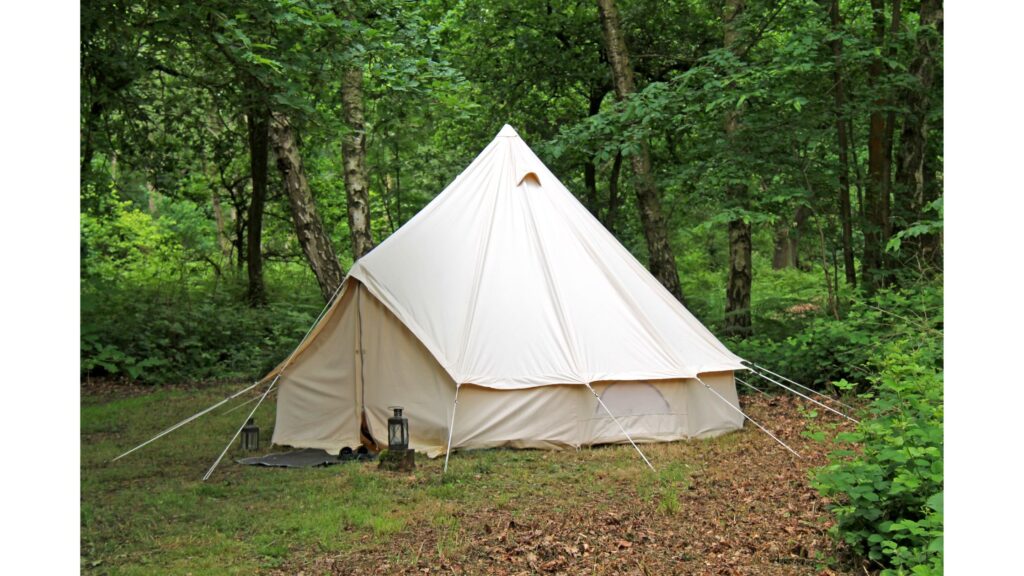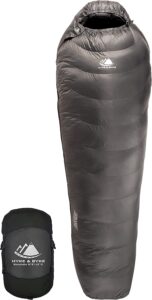
If you have ever gone camping, you’ve probably aware that there are many basic survival skills needed for outdoor living, such as learning how to start a fire, collect water, cook camping meals, build a campsite, dig a latrine, or catch a fish. Those survival skills will come in handy, especially if a SHTF (Sh!t Hits The Fan) scenario occurs. But is long-term camping a realistic option in a SHTF scenario?
After Russia invaded Ukraine in February, many Ukrainian citizens fled cities under siege, creating the largest mass movement of people in Europe since World War II. Over 6 million Ukrainians are homeless. Camping supplies are essential as they take shelter in sporting arenas, train stations, or makeshift shelters.
Where would you go if you had to leave your home for a natural disaster, chemical spill, wildfire, or an impending war? Depending on the circumstances, it could be dangerous to stay in your house. The mass population migrates, looking for government shelters. It’s common for preppers to plan on evacuating to the wilderness if they own a decent tent, an RV, a camping trailer, or a cabin.
But is it realistic to prepare for a SHTF scenario by thinking you’ll rough it in the woods and adapt to living off the land? Long-term camping takes a lot of practice and planning.
Long-Term Camping and How it Relates to Prepping
Camping — some love it, others hate it. Perhaps you’ve never camped out overnight or just returned from a long weekend camping trip. Whether it’s solo, on a family trip, or on a corporate retreat, camping is an excellent opportunity to visit a new area, connect with nature and take a break from all of life’s distractions.
Most people camp for several days, which is about when the ice melts in the cooler, before returning home to resume their daily routines. It’s less common for people to camp for weeks, but it can vary from person to person.
When you go long-term camping, you often need a four-season tent, camping trailer, or RV for shelter. Extensive food, water filter, and other supplies are also needed. Many long-term campers also invest in some type of power supply, such as a portable generator.
Most of the activities involved in long-term camping overlap with preppers that plan for a worst-case scenario. You need shelter, food, water, power, survival supplies, and a safe spot. So since preppers have most of the essential gear, is long-term camping a realistic plan?
Reasons Why Long-Term Camping in the Woods Might be Unrealistic if SHTF
Bugging out to the woods might sound ideal in a perfect world, but there are some reasons why it might not be feasible for every prepper. Here are some points to consider that could make long-term camping unrealistic:
- Depending on where you live, you will have to purchase remote land or move your campsite every 14 days, depending on state and federal laws.
- Even if you have decent survival skills, indefinite camping might prove too challenging for you, your partner, or your family members.
- Managing a group of long-term campers can dwindle your survival supplies quickly.
- Woodland camping can put you and your family in dangerous situations with little or no protection.
- Anyone with health challenges dependent on medications would not have access to doctors, pharmacies, or hospitals.
- Roads may be closed, which leads to your planned long-term camping destination in a SHTF scenario.
- Harsh weather conditions can make it much harder to survive in the woods indefinitely.
Because every prepper is different, these points may or may not apply to you. However, some world events could change your circumstances and force you to choose if long-term camping is the only option.
Essential Gear for Long-Term Camping
Since long-term camping is different from short-lived camping trips, you’ll need to purchase the right gear. Here are some essential things you need for long-term camping:
- A quality living space, such as a decently sized RV, camping trailer or a four-season tent
- Appropriate clothing for changes in the seasons
- A GPS or compass
- Four-season sleeping bag
- Heating and cooking resources
- Medical kits and prescriptions
- Personal hygiene supplies
- Off-grid lighting and a power source
- Camping water filter and your prepper food stash
- Fishing, hunting, and trapping gear (tracking cloth wazoo survival gear )
Should you consider becoming a long-term camper?
Before choosing long-term camping, you should consider the pros and cons. If you’re an experienced camper, you might already know the pros and cons. But if you’re a prepper with little or no camping experience, continue reading to learn if it’s right for you and your family.
Pros
- Can significantly improve your mental and physical well-being
- Allows you to live a minimalist lifestyle
- The ability to move your shelter to a desired location
- It can teach you valuable survival skills
- Once you have camping gear, it can be used in emergency situations
Cons
- Become subject to unpredictable weather conditions
- Animals become less fearful and could put you and your family in danger
- Other campers might find your location and have malicious intentions
- It could be challenging to find help if someone is seriously sick or injured
- Food, fuel, and water supplies could run low
- You might get tired of the camping lifestyle
Related Article: 10 Tips to Enjoy Camping
Long-Term Camping Puts Your Survival Skills to the Test
When you think about a SHTF scenario, you might consider staying in your home because it’s the safest option. While this may be true, evacuating your home and taking a long-term camping trip might be a safer option. Although it does require more preparation than a standard camping trip, it’s better to be safe than sorry in a SHTF situation. Making a plan and practicing before the unexpected happens can make long-term camping a potential, realistic option for you and your family if things go awry.
Thanks for visiting Preppers Survive. Before you leave subscribe to our newsletter. If you enjoyed this article is Long-Term Camping a Realistic Option, please share it on your favorite social media.





great Article, thanks, I appreciate what you write.
Finding a tent of some sort that Actually allows you to “Hide” / blend into the area, or add a thin”Lightweight Tarp” makes you harder to find. I have one for mine. don’t want to stick out. nothing shiney.